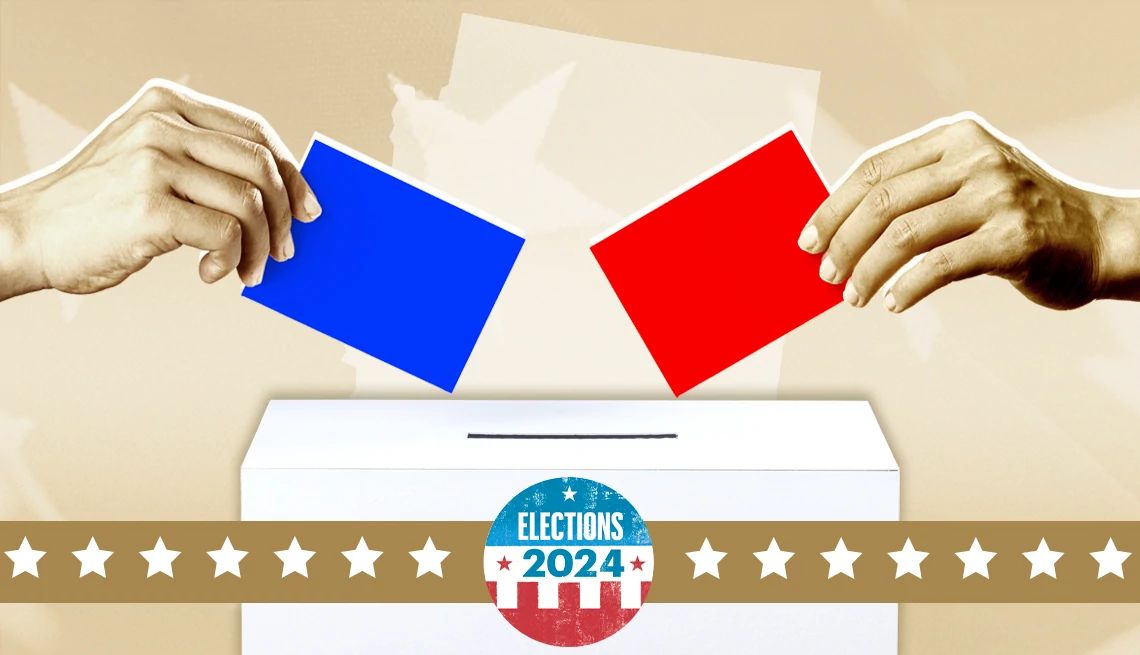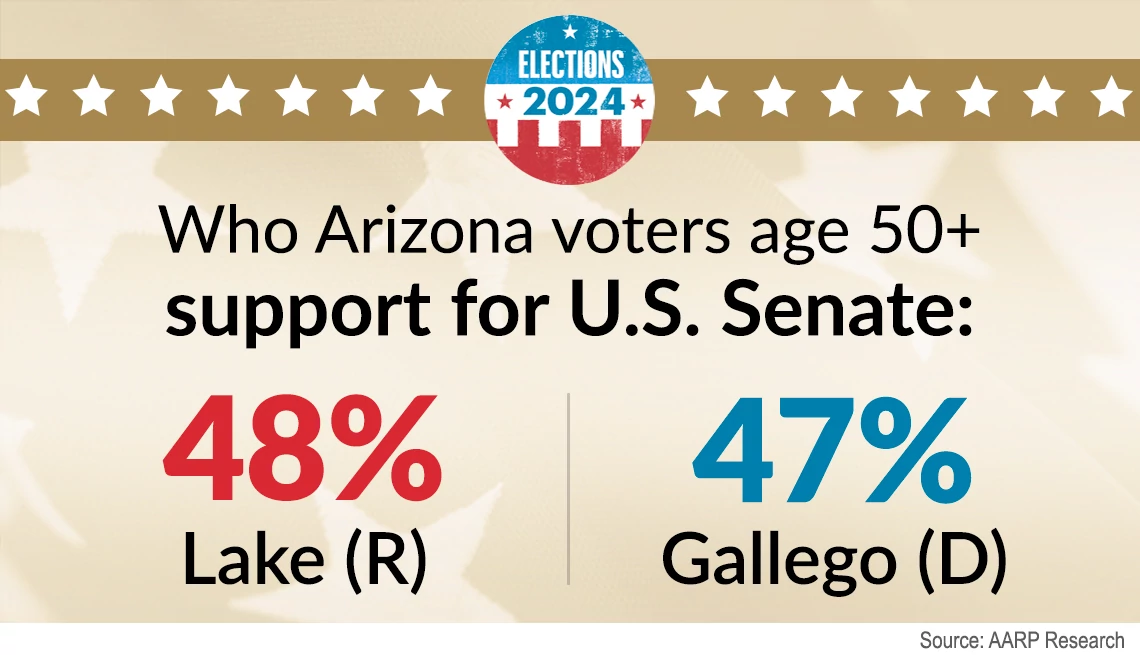AARP Hearing Center


More older voters in the presidential election battleground state of Arizona say they would cast a ballot for former President Donald Trump than for President Joe Biden, according to a new poll from AARP.
Fifty-two percent of Arizona voters age 50-plus say they would support Trump, compared with 43 percent for Biden — a 9-point lead, according to the poll conducted by bipartisan team Fabrizio Ward and Impact Research.


AARP Membership— $12 for your first year when you sign up for Automatic Renewal
Get instant access to members-only products and hundreds of discounts, a free second membership, and a subscription to AARP the Magazine. Find out how much you could save in a year with a membership. Learn more.


Pollsters asked voters whom they would choose if the election were held today between Biden, a Democrat, and Trump, a Republican. Trump maintained a 6-percentage-point lead among Arizona voters of all ages, with 50 percent favoring him, compared with 44 percent for Biden, the poll shows. Among Hispanic voters 50-plus, 56 percent favor Biden compared with 40 percent for Trump.
Pollsters interviewed 1,358 likely Arizona voters from May 28 to June 4, a week that included the announcement May 30 of a guilty verdict in a New York hush-money case against Trump.
Arizona is among the battleground states in the presidential election and provides 11 electoral votes — or roughly 4.07 percent — toward the 270 total needed for the victor. In 2020, Biden won Arizona, garnering 49.4 percent of the vote compared with 49.1 percent for Trump.
“It was extraordinarily close in 2020, and it very much remains a battleground state,” says Jeff Liszt, a partner at Impact Research.
Voters were polled on how each candidate performed or is performing as president. For Biden, 41 percent of voters 50-plus approve of what he is doing in office, while 58 percent disapprove. For Trump, 55 percent of voters 50-plus approve of what he did as president, versus 44 percent who disapprove.


Asked about Arizona’s U.S. Senate race, voters were split nearly evenly on which candidate should succeed Sen. Kyrsten Sinema, an independent, who announced in March she would not seek a second term. Pollsters asked voters who would get their vote between front-runner candidates Kari Lake, a Republican and former gubernatorial candidate, and U.S. Rep. Ruben Gallego, a Democrat. Forty-eight percent of voters 50-plus say they would support Lake, while 47 percent say they would support Gallego.
Among Hispanic voters 50-plus, support is strong for Gallego: 62 percent of those polled support the Democrat compared with 36 percent for Lake. The poll shows Gallego leading by 3 percentage points among likely voters of all ages, with 48 percent supporting Gallego and 45 percent supporting Lake.
“Arizona is demonstrating a good bit of swing voting,” says Bob Ward, a partner at Fabrizio Ward, noting that swing voting is when voters cast ballots for one party in one race and another party in another race. “It’s a phenomenon that has become less and less common in recent election cycles as the country has become more and more polarized, but here in Arizona, it’s pretty pronounced.”




































































More From AARP
8 Things to Know About Election Disinformation and AI
Artificial intelligence spreads, amplifies falsehoodsHow Voting Laws Will Impact 2024 Elections
Some states have tightened their rules since 2020, but others have made it easier to cast a ballotHow to Register and Vote in the 2024 Elections
State-by-state guide to everything you need to know
Recommended for You